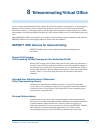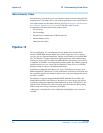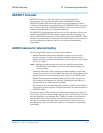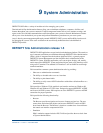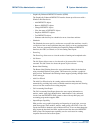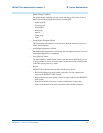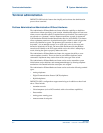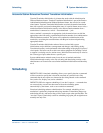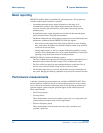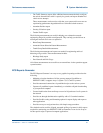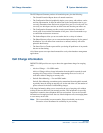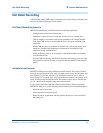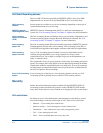
Scheduling
9-5
Overview
555-233-001 — Issue 2 — November 2000
9 System Administration
Automatic Station Relocation/Terminal Translation Initialization
Terminal Translation Initialization is a feature that works with the Administration
Without Hardware feature. Terminal Translation Initialization is part of the Portless
Administration/Administration Without Hardware feature, but can also be a stand-
alone feature. Terminal Translation Initialization associates the terminal translation
data with a specific port location through the entry of a special feature-access code, a
terminal translation initialization security code, and an extension number from a
terminal that is connected to a wired — but untranslated — jack.
After a terminal is connected to an appropriate jack, the terminal user can dial the
appropriate codes followed by a pretranslated extension number of an Administration
Without Hardware terminal. The system will complete the administration of the
terminal by associating the translation data with the port location and performing
appropriate checks.
Terminal Translation Initialization reduces labor associated with system
initializations, major additions, rearrangement and changes, and building wiring.
Translation data entry can be performed without knowledge of the physical layout of
circuit packs. End-users can move their own station equipment if a building is wired
to support it, reducing costs for station moves. Individual lines need only be wired to
the correct type of port, rather than to a specific port.
System administrators maintain control over the use of terminal translation
initialization through security codes. By activating and deactivating security codes,
administrators can control who uses terminal translation initialization and when they
use it.
Scheduling
DEFINITY ONE’s functional scheduling allows you to specify the time a command
will be executed or specify that it should be executed on a periodic basis. Only
commands that do not require user interaction after being entered on the command
line (such as list, display, test) can be scheduled.
DEFINITY ONE also supports scheduling of “one shot” requests — commands that
are executed only once and are then removed from the scheduling queue
automatically by the feature, such as save translation commands.
Functional scheduling enhances administration. For example, scheduling of save
translations is particularly important when large numbers of translation changes are
made during the day, and ensures they will be saved to tape at the specified time. The
“one shot” report is particularly useful for scheduling large print jobs at night that are
normally run only once.



